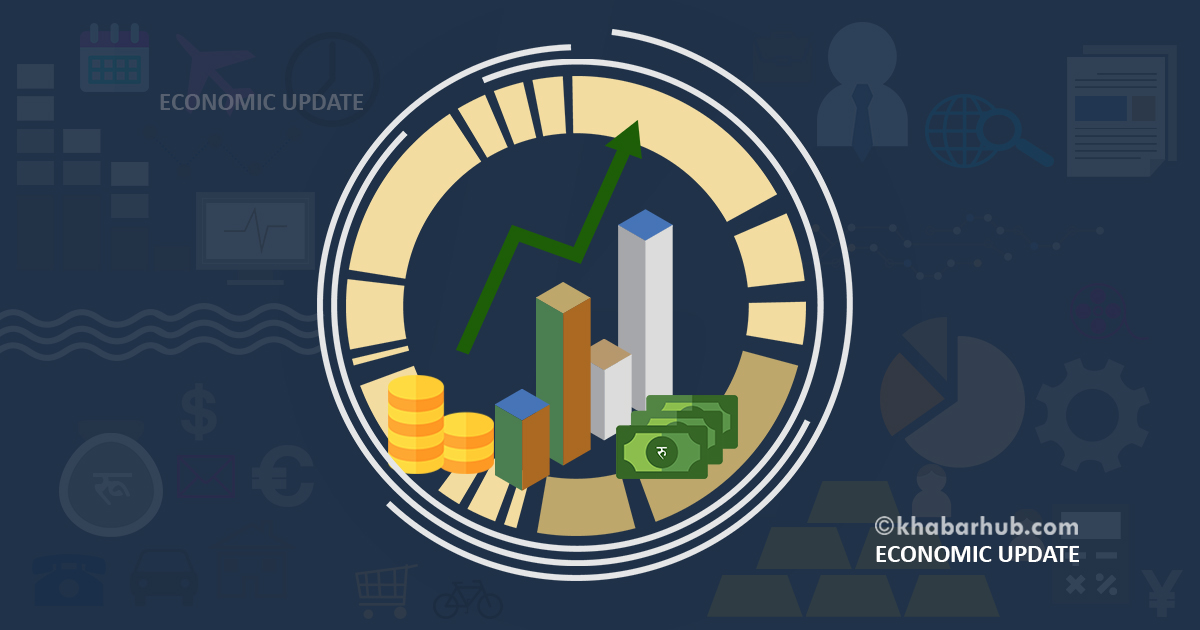KATHMANDU: Economic Digest offers a concise yet comprehensive overview of significant business happenings in Nepal, presented in easily digestible summaries.
Banks lower base interest rate to 7 percent
Nepal’s commercial banks have reduced their base interest rate to as low as seven percent due to slow loan demand and excess liquidity.
The reduction of base interest rates by the commercial banks is a strategic move aimed at leveraging excess liquidity and reviving loan demand.
The effectiveness of this approach will depend on how well it stimulates borrowing and contributes to overall economic growth.
In the past few months, banks have steadily lowered their interest rates, decreasing the base rates by 22 percentage points between mid-May and mid-June. Data from 20 commercial banks show the average base rate has dropped to 8.53 percent this month, down from 9.69 percent in January.
Nepal Rastra Bank records reveal that commercial banks hold Rs 955 billion more in deposits than loans. As of May 20, deposits totaled Rs 5.477 trillion, while loans amounted to Rs 4.522 trillion.
The lending rate, which includes a premium added to the base rate, has also fallen. Standard Chartered Bank Nepal has the lowest base rate at 7.01 percent, while Kumari Bank has the highest at 9.63 percent.
Nepal’s outstanding public debt reaches Rs 2.4 trillion
Nepal’s outstanding public debt has surged to nearly Rs 2.4 trillion, increasing by Rs 98 billion in the last 10 months of the current fiscal year, as reported by the Public Debt Management Office (PDMO).
The surge in public debt to nearly Rs 2.4 trillion, driven by both internal and external borrowing, highlights significant fiscal challenges.
Addressing these through strategic debt management, fiscal reforms, and economic growth initiatives will be vital to ensuring long-term fiscal health and economic stability.
At the start of the fiscal year, the public debt was Rs 2.299 trillion, now constituting 42.02 percent of the GDP. In the past month alone, public debt rose by Rs 11.64 billion.
Internal debt accounts for 20.76 percent of GDP, while foreign debt represents 21.26 percent. Up to the end of Baisakh, the government borrowed Rs 264.63 billion and repaid Rs 166.55 billion in principal.
Of the total loan recovery, Rs 191 billion came from internal loans and Rs 73.63 billion from foreign loans.
NEPSE soars 112.73 Points, investors gain Rs 178 billion last week
The Nepal Stock Exchange (NEPSE) surged by 112.73 points last week following Nepal Rastra Bank’s revision of the monetary policy and banks’ reduction of interest rates on loans against shares.
The market opened at 2,018.76 points on Sunday and closed at 2,131.49 points on Wednesday, with a public holiday on Thursday for Buddha Jayanti. The index fluctuated between a high of 2,140.02 points and a low of 2,028.15 points, showing a volatility of 111.87 points.
Throughout the four trading days, NEPSE experienced significant gains each day:
Sunday: Increased by 45.69 points
Monday: Increased by 27.54 points
Tuesday: Increased by 23.94 points
Wednesday: Increased by 15.54 points
This upward trend resulted in share investors making capital gains of Rs 178 billion during the week.
Forex indicates a steady currency market
The Nepal Rastra Bank (NRB) set exchange rates for foreign currencies on Sunday, with most rates, including those for the US Dollar, Euro, Pound, and Dinar, remaining unchanged from the previous day (Saturday).
This stability in exchange rates indicates a steady currency market for these major foreign currencies in Nepal.
The buying rate for 1 US Dollar is 132.66 rupees, while the selling rate is 133.26 rupees. The European Euro is being bought at 143.75 rupees and sold at 144.40 rupees.
For the British Pound, the rates are 168.68 rupees for buying and 169.45 rupees for selling. The Australian Dollar is being bought at 87.74 rupees and sold at 88.14 rupees.
The Kuwaiti Dinar has a buying rate of 432.08 rupees and a selling rate of 434.03 rupees, while the Bahraini Dinar’s buying and selling rates are 351.92 rupees and 353.51 rupees, respectively.
(Compiled and prepared by Srija Khanal)
Economic Digest is a daily morning economic digest, basically relatable summations of the most important business news, and happenings from Nepal into easy-to-understand summaries.









Comment